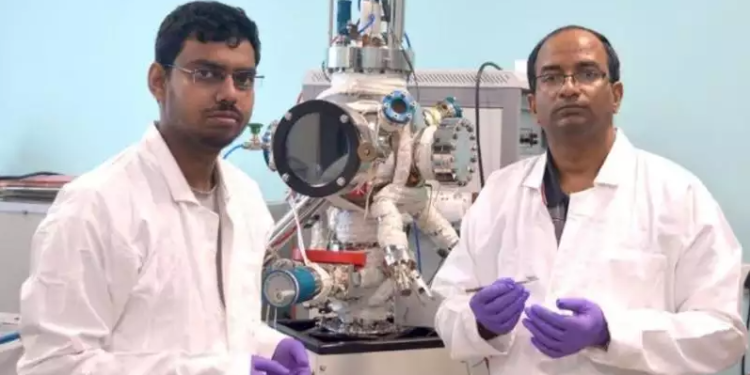THD NewsDesk, Kolkata: The latest addition to the indigenous health-tech industry of India is a diagnostic device for Chronic Obstructive Pulmonary Disease. As reported on the 10th of September, Thursday, a research team of IIT Kharagpur led by Professor Dipak Kumar Goswami, department of physics executed the invention.
As per the released statement of the Institute, the detecting device is based on an integration of Artificial Intelligence (AI) with ‘Internet-of-Things medical devices’ (IoT-MD). The team together has developed the smart mask, SenFlex T, synced with an android monitoring gadget through Bluetooth.
“SenFlex.T can be used at home by patients. This will address the critical issue of COPD at an early stage by means of advanced healthcare technology, a boon for both patients and the overall healthcare system,” said Professor Goswami.
Working of SenFlex T-
- Connected to a cloud computing server, the implemented AI predicts the severity of the condition (COPD) through machine learning.
- The app constantly monitors the breathing pattern rate, the heart rate, and the oxygen saturation level in the blood, through the synced system of Bluetooth.
- The oxygen saturation level is then monitored by an installed commercial pulse oximeter which is integrated with the sensor system.
- The patient data is fed automatically to the cloud server through the user android interface of SenFlex T
- The processing of the data is done by AI-ML, and the corresponding reports are made available for further medical consultation.
COPD is a commonly occurring chronic respiratory disease caused by excessive exposure to harmful gases and particulate matters.
The COPD tests are mostly avoided as the equipment is not readily available. If severe, COPD can prove to be detrimental to life. The data interpretation and the tests are expensive. The cost of the device has been predicted to be Rs. 2500.
The released report suggests that patient history and clinically verified symptoms were the foundations of early diagnosis, to date. This deterred the early detection of the disease.
“This challenge and the criticality strongly motivated us to develop an AI-based system that can overcome the problem of interpreting the results and be accessible not only for the doctors but also for the patients,” said Goswami.
A patent has been filed for innovation and invention. This development could prove to be especially beneficial for factory and mine workers. Early detection can save the lives of many such workers who are heavily exposed to fatal gases.






















